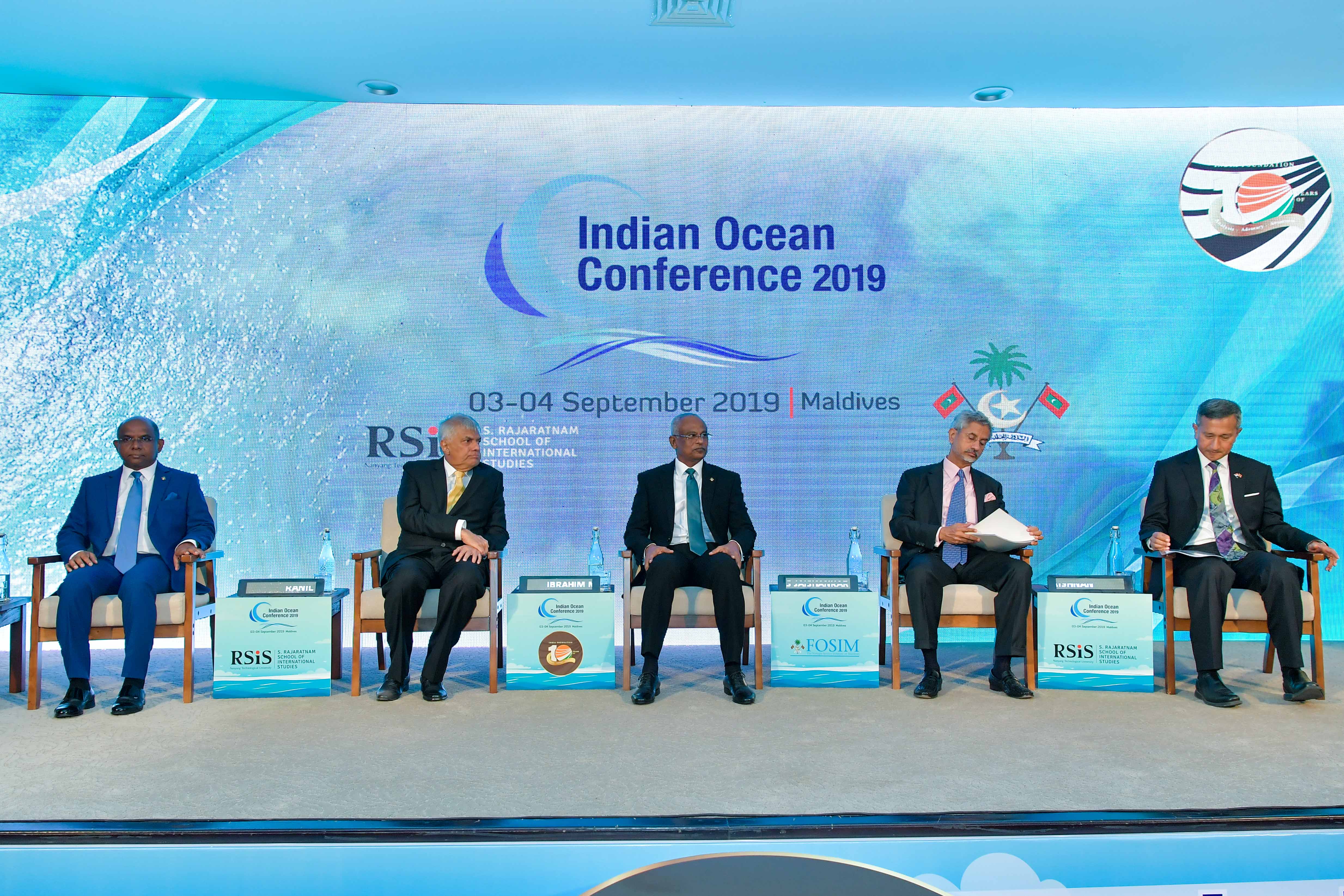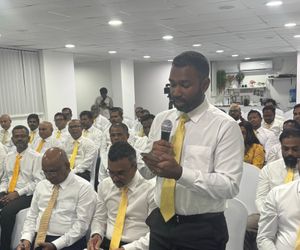Maldives calls for greater integration of South Asia to address challenges
President Solih highlighted the lack of effective institutions for cooperation.

04 Sep 2019, 09:00
Greater integration of Indian Ocean neighbours is needed to address common challenges posed by terrorism and illicit maritime activities, President Ibrahim Mohamed Solih proposed on Tuesday.
In his address at the fourth Indian Ocean Conference underway at the Paradise Island Resort near the capital Malé, the Maldives president highlighted the lack of effective institutions to combat trafficking, prevent the collapse of fish stocks and share intelligence information.
“The Indian Ocean Region, especially in its South Asian Core is one of the most poorly integrated regions in the world,” Solih observed. “This is costing us not only in terms of effective collaboration on substantial issues but also materially as well, consigning our people to a slower pace of economic progress.”
Intraregional trade in South Asia “comprises a dismal five percent of our collective GDP” in contrast to 25 percent among ASEAN countries. The collective GNP of Indian Ocean states could be increased by an estimated US$568 by reducing non-tariff trade barriers.
Become a member
Get full access to our archive and personalise your experience.
Already a member?
Discussion
No comments yet. Be the first to share your thoughts!
No comments yet. Be the first to join the conversation!
Join the Conversation
Sign in to share your thoughts under an alias and take part in the discussion. Independent journalism thrives on open, respectful debate — your voice matters.




